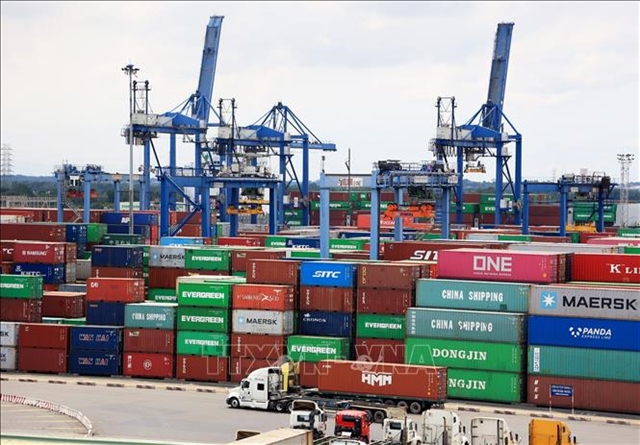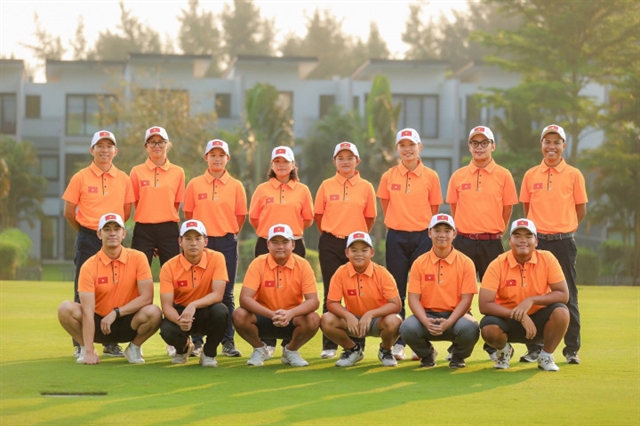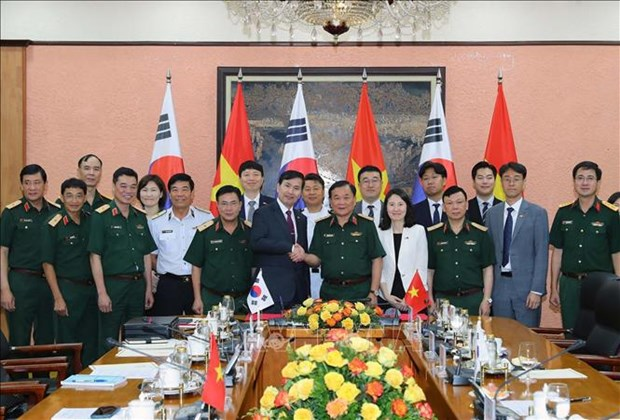 Opinion
Opinion

Hoàng Nam Tiến, FPT Software Chairman, tells Trí Thức Trẻ (Young Intellectual) that Vietnamese universities can’t lose time in training students for the fourth industrial revolution (Industry 4.0).
 |
| FPT Software Chairman Hoàng Nam Tiến. — Photo cafef.vn |
Hoàng Nam Tiến, FPT Software Chairman, tells Trí Thức Trẻ (Young Intellectual) that Vietnamese universities can’t lose time in training students for the fourth industrial revolution (Industry 4.0).
The Fourth Industrial Revolution has become a common utterance in Việt Nam. As the President of the country’s biggest software company, what do you think are its implications for the country?
FPT was one of the first companies to have nurtured the idea of bringing Industry 4.0 to Việt Nam. I’m very happy that when we talked about it to Party and Government leaders, they all acknowledged that it would present both opportunities and challenges. A short time later, the Central Economic Commission organised a workshop on it, making it a daily topic for Vietnamese enterprises.
If we look back at previous industrial revolutions, they had the common objective of improving labour productivity. In other words, new production methods were developed to replace the old ones. For our country, advantages like low labour wages or a large contingent of young workers no longer carry their previous value.
Connectivity is an essential element of this revolution. But in Việt Nam, millions of youth spend their time on Facebook or playing games on their smart phones. Can you comment on this?
I have to admit that on an average, our young people spend more than three hours a day on Facebook, among the highest in the world.
However, on the brighter side, the Facebook presents a rather wide range of knowledge. As a result, it would have helped the youth get a larger picture of the world. I’m very glad that the ideas of the 4.0 revolution, artificial intelligence (AI) or Big Data have become topics discussed by many Vietnamese youth.
It seems as though young people can launch a start-up with just their smart phone. It is so easy to become a startup owner?
This is a misunderstanding about the concept of startups. A sharing economy, like Uber, Grab or AirBnB, is part and parcel of startups.
So startup people are the ones who come up with markedly different ways of production or doing business from the normal. One thing that I would like to share with you is that only three out of 1,000 startups are successful.
So what are the opportunities being opened up by the fourth industrial 4.0 revolution?
Six years ago when I first came to work for Fsoft, I realised it was 20-30 years behind its competitors in the fields of ERP, Core banking, OS and BSS in telecommunications or manufacturing.
With a deeper understanding of our weakness, we decided to find our own way – i.e to focus on the world’s latest IT foundation, such as mobile technology, big data, icloud, IoT, AI and Robotics. In these areas, the gap between us and our opponents is just about 2-3 years.
To compete with international major IT firms, we decided to co-operate with some big names, including Amazon, IBM, Microsoft and others. In addition, we have also co-operated with big industrial corporations like Siemens, GE and others.
International co-operation has helped Fsoft gain a reputation in the world market. Up to 96 percent of Fsoft personnel are Vietnamese.
Yes, your co-operation has narrowed the gap with leading technology companies, but the profit that Fsoft makes is not much higher than your traditional peers in Việt Nam. How would you respond to that?
By this time of the year, a software company with revenues of some US$300 million a year and profit of US$44 million is not bad. But not many Vietnamese companies could have earned such high revenues or profits.
But what I want to say is that our software foundation has been highly acclaimed by many world leading companies, and I am confident that in a near future Fsoft will build on its annual profit of US$ 44 million and have its shares listed in the Market Exchange.
We have set a goal of raising revenue to US$ 1 billion by 2020 with 30,000 software engineers; by 2025 our revenues will be $2 billion with 50,000 software engineers.
Fsoft recently introduced its first driverless car. Does this mean that your company plans to compete with other major international companies in making driverless cars?
When we started with big data, iCloud, IoT, AI and robotics, we also invested in the driverless car. However, we have not made a decision to engage in making them. I don’t think there is a place for driverless cars to run on Vietnamese streets.
However, we’re close to manufacturing autonomous/driverless cars to run in sea ports, warehouses or factories. At present, we are already working with two of three companies specialising in making autonomous equipment.
You have mentioned that Industry 4.0 will negate Việt Nam’s advantage of low labour costs, with machines replacing humans. What will happen then?
I have to say in the next decade, millions of Vietnamese workers in the industries of textiles, leather shoes and electronic assembling will lose their jobs to automation. This is a serious problem for us to think about, as our workers are young.
The price of one robot at present is about US$200,000. But in less than 3 years, it will drop to $20,000-30,000. So, no cheap labour can compete with machines. What’s more important, the machines perform their jobs faster and better than the human being.
How should Việt Nam prepare for the 4.0 revolution?
If universities, even colleges and technical schools don’t prepare for the rapid change brought by the 4.0 revolution, Việt Nam will miss out. May be some people will argue that we have already missed the three previous industrial revolutions, but we are still alive, so missing out on this 4.0 revolution will not be a big thing.
However, in my opinion, there is an opportunity that is being presented to us. So why don’t we try to seize it? — VNS




